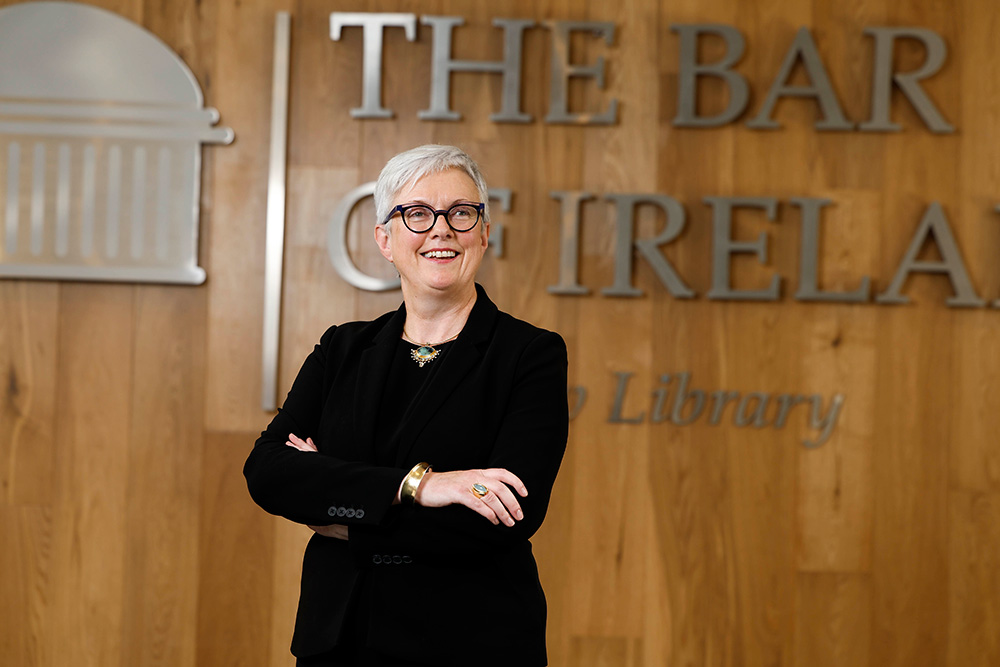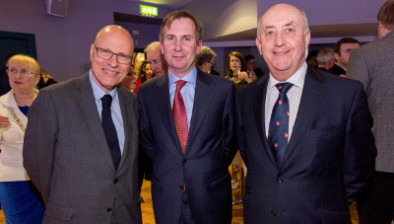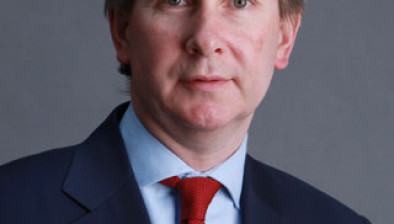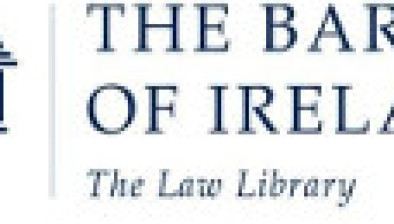Barristers to walk out again over criminal legal aid fees

Pictured: Bar Council chairperson Sara Phelan SC.
Criminal barristers are set to strike again on three dates in July following the government’s failure to follow through on a promise to review fee levels.
The Bar Council last night agreed to recommend to its members in criminal practice across the State that they should withdraw services on Tuesday 9 July, Monday 15 July and Wednesday 24 July.
It follows last year’s unprecedented one-day withdrawal of services on Tuesday 3 October, which forced government ministers to the negotiating table.
The action was taken in pursuit of an independent, meaningful, time-limited and binding mechanism to determine the fees paid to criminal barristers by the DPP and under the criminal legal aid scheme.
Fees paid by the State to criminal barristers were, at the time, more than 40 per cent below 2002 levels in real terms, following a range of cuts applied during the financial emergency.
This was despite a government-commissioned review in 2018 acknowledging that the reversal of the cuts was justified given the level of reform and flexibilities delivered by the profession.
A 10 per cent restoration of fees was subsequently announced in Budget 2024, representing an unwinding of the 10 per cent cut that was uniquely applied to barristers in 2011.
However, even after this 10 per cent was restored, the full range of FEMPI-era cuts that were applied across the public sector continue to apply to the profession, and the unilateral breaking of the link in 2008 to public sector pay agreements has yet to be restored.
The government did commit to a review process looking at the structure and level of fees paid to criminal barristers, through which this would be considered — but that process has yet to begin nearly nine months later.
The Bar Council consulted with members over the last number of weeks, culminating in a general meeting on Monday at which the overwhelming view of those present was that further action should be recommended until the long-standing issue is finally resolved.
Today, chairperson Sara Phelan SC said: “The Council has at all times made clear, both to government and to our members, that we would be willing to allow a period of time up to June 30th 2024, for the review proposed by the minister for justice in October 2023 to be completed.
“In light of the fact that this review has not yet even commenced, frustration has been growing amongst practitioners. We are simply looking for fairness. We have been seeking pay restoration for eight years.
“A government-commissioned review in 2018 acknowledged that the reversal of the cuts imposed on barristers following the financial emergency in 2008 was justified given the level of reform and flexibilities delivered by the profession. Yet, barristers continue to be treated differently to others in the criminal justice system and indeed to society at large.”
She added: “We sincerely regret having to take this action again in furtherance of a mechanism to determine fees, and we will work with our colleagues in the criminal justice system to minimise the impact on the most vulnerable people.
“In the meantime, we remain available to engage with government — the ball is in their court.”
Sean Guerin SC, chair of the criminal State bar committee, said: “It is highly regrettable that we have been left with no choice but to take this course of action.
“It has been acknowledged in government that there is ‘no good reason’ why fees of criminal barristers shouldn’t be restored, yet eight months on from a commitment to establish a review process, no meaningful progress has been made.
“The flexibility delivered by barristers over a number of years has enabled significant and valuable reforms to be implemented in the operation of the criminal justice system to improve the experience of victims, their families and vulnerable witnesses, to improve administrative efficiency and enable financial savings by the Office of the DPP, the Courts Service and other state agencies, and to save the time and effort of individual members of the public serving as jurors.
“There is no good reason for failing to effect pay restoration in return for delivery of these efficiencies and improvements. The targeting of the bar in this way represents a fundamental threat to the integrity of the criminal justice system.
“It has consequences for recruitment and retention at the criminal bar and this is already creating issues which, if not addressed, will undoubtedly have a profound impact on the administration of criminal justice and the public good.”








